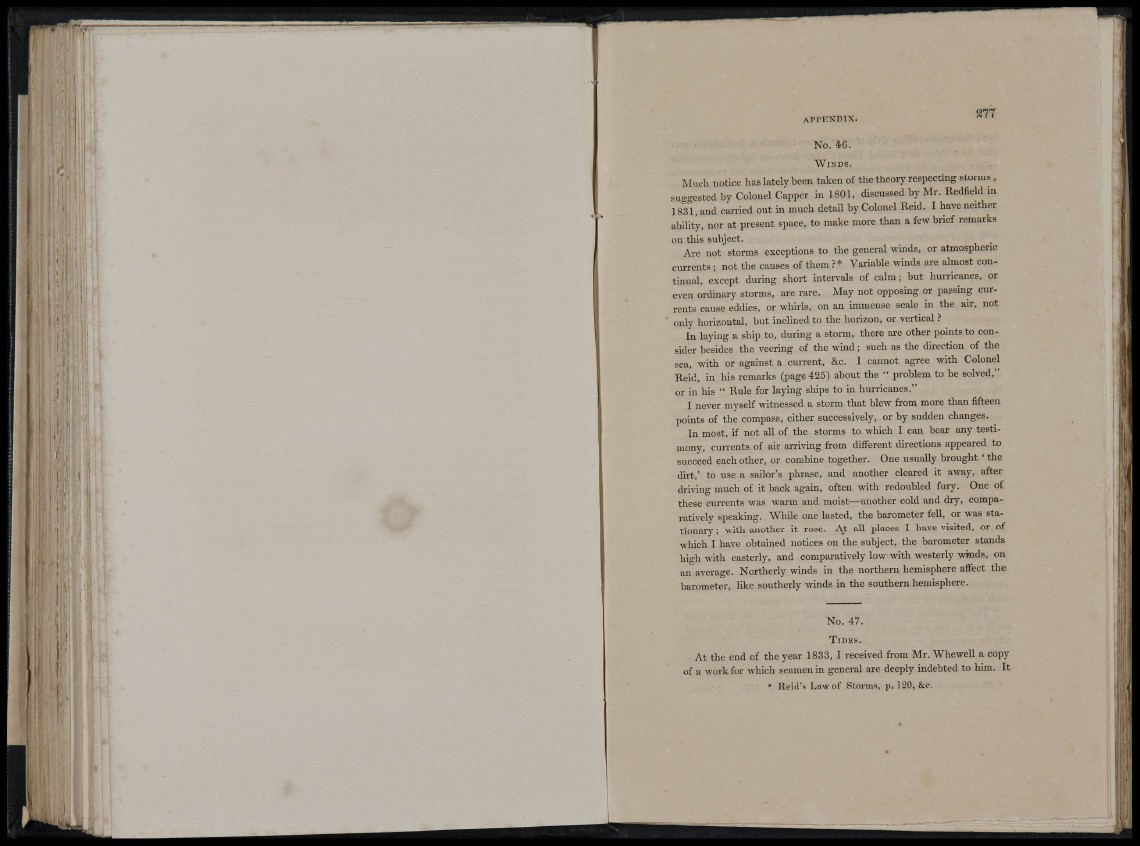
1 c
«I.
ArpKNnix.
No. 46.
W I N D S .
Much notice has lately been taken of the theory respecting storms,
sno-gested by Colonel Capper in 1801, discussed by Mr. Redfield in
1831, and carried out in much detail by Colonel Raid. I have neither
ability, nor at present space, to make more than a few brief remarks
on this subject.
Are not storms exceptions to the general winds, or atmospheric
currents ; not the causes of them ?* Variable winds are almost continual,
except during short intervals of calm; but hurricanes, or
even ordinary storms, are rare. May not opposing or passing currents
cause eddies, or whirls, on an immense scale in the air, not
• only horizontal, but inclined to the horizon, or vertical ?
In laying a ship to, during a storm, there are other points to consider
besides the veering of the wind; such as the dnection of the
sea, with or against a current, &c. I cannot agree with Colonel
Rei'd, in his remarks (page 425) about the " problem to be solved,"
or in his " Rule for laying ships to in hurricanes."
I never myself witnessed a storm that blew from more than fifteen
points of the compass, either successively, or by sudden changes.
In most, if not all of the storms to which I can bear any testimony,
currents of air arriving from different directions appeared to
succeed each other, or combine together. One usually brought ' the
dirt,' to use a sailor's phrase, and another cleared it away, after
driving much of it back again, often with redoubled fury. One of
these currents was warm and moist—another cold and dry, comparatively
speaking. While one lasted, the barometer fell, or was stationary
; with another it rose. At all places I have visited, or of
which I have obtained notices on the subject, the barometer stands
high with easterly, and comparatively low with westerly winds, on
an average. Northerly winds in the northern hemisphere affect the
barometer, like southerly winds in the southern hemisphere.
No. 47.
T I D E S .
At the end of the year 1833, I received from Mr. Whewell a copy
of a work for which seamen in general are deeply indebted to him. It
• ReitVs Law of Storms, p. 120, &c.